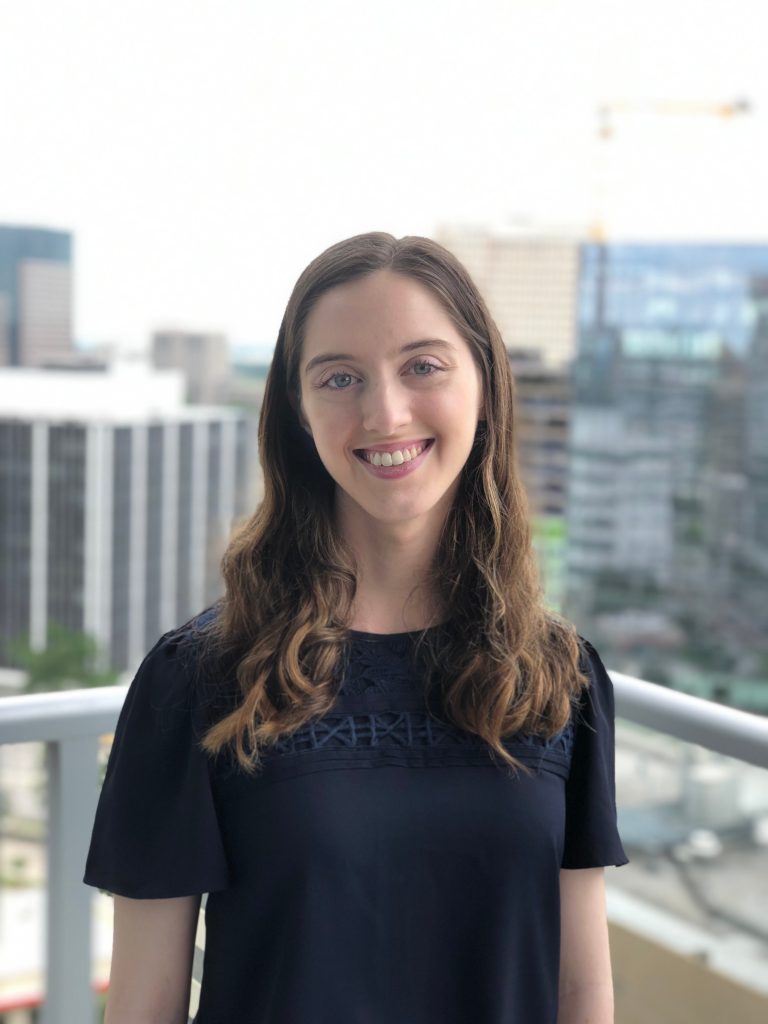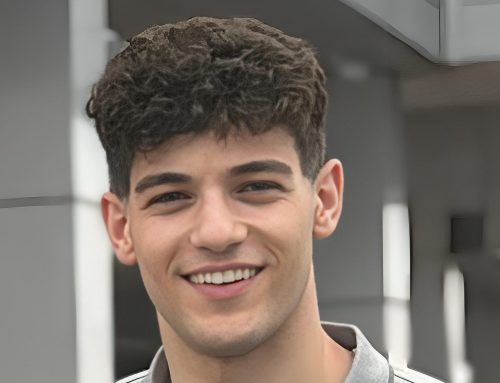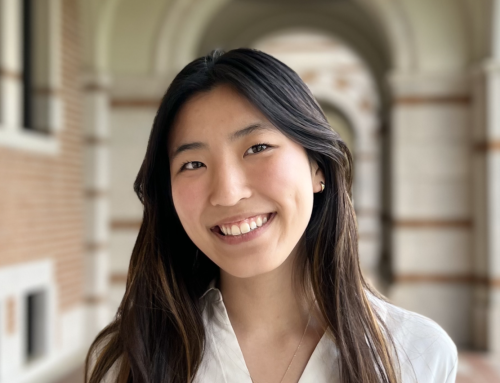
What subjects and classes do you help our students with?
I help students with all levels of math and computer science. I have worked with a variety of ages for tutoring, including middle and high school students for Geometry and college students for Data Structures & Algorithms. I also help with both the ACT and SAT.
What is your educational background?
My tutoring career began in high school by providing math SAT tutoring to my peers. I went to Rice University to study Data Science & Statistics, and I have been a Computer Science and Statistics teaching assistant for the past 5 years.
I continue to tutor for Data Science and Statistics after receiving my Masters in Computer Science, and I work in machine learning outside of this.
What is your favorite subject to tutor?
Math! I like its interconnectedness as there’s always a visual, object, or real life process I can use to teach students how to remember a concept.
I especially like how middle and high school math focuses on clearly expressing and organizing ideas and arguments. It’s especially rewarding to help students learn to think critically about their own ideas and their presentation.
What does a typical subject tutoring session with you look like?
- Start out by greeting them and asking about their week. I ask about upcoming tests, overall workload, and what the student wants to focus on for the lesson.
- Older students that I work with generally provide a copy of their entire notes/practice packet and highlight problems that they want to work on in advance.
- Start the lesson by discussing what needs to be completed and the priority for each concept or assignment (generally on a piece of paper).
- Together, we work on their assignments and concepts from those assignments in the order that we discussed. In particular, we target difficult or confusing material from their homework.
- I give the student the tools they need to complete the problems on their own, so that our focus is on learning, not just completing a worksheet.
- As we complete each line item on their lesson reference sheet, we make some notes about potential pitfalls, overall confidence, and whether more practice could be needed.
- At the end of the lesson, we use the reference sheet to discuss the tasks they have left to complete on their own, and areas where they need supplemental practice.
- I send digital notes to parents that reflect the lesson’s agenda and supplemental practice problems or lessons.
What does a typical test prep tutoring session with you look like?
- We exchange greetings, and I ask about the student’s week, workload, and their own test prep over the past week.
- We outline our objectives for the lesson on a piece of paper. These usually consist of reviewing test questions or frequently missed topics.
- For each new topic that we go over, we fill in the reference sheet with notes about the student’s proficiency and confidence.
- We work through as many test questions as we can, focusing on areas of confusion and difficulty. For each difficult topic, I have the students write down keywords they should focus on or tricky wording that should be broken down on their reference sheet.
- We work on additional practice worksheets for particularly confusing problems.
- To conclude the lesson, we use the reference sheet to outline areas for additional studying and tasks to complete on their own.
- Afterwards, I send out notes to parents that reflect these details, so that everyone has the same expectations for the student’s next week of studying.
What’s your typical approach with working on executive functioning with younger students?
At General Academic, I generally work with high school students and middle school test prep students, so executive functioning is more of a reiteration of habits they should already be practicing, or at least already have been introduced to.
For my middle school students, a portion of the session will focus on time management and planning out a study schedule. I’ve found that having students plan out their study time and objectives helps them see a more concrete path to improving their scores. When I walk through how to study and take initiative, these students’ performance can improve a lot in a short period of time.
How do you view your role as a tutor?
I mainly view my tutoring role as that of a mentor, and sometimes a teacher.
For students that have clearly defined goals coming into a session, I’m there to correct minor errors, help them understand how to avoid those errors, find shortcuts, and connect them with resources that can further their success.
For students who are very behind on the material, my role is more of a teacher than a mentor. In this case, we spend the bulk of the lesson going through new material, helping the student process it in different ways to see what is most beneficial.
Tell me about one of your favorite sessions you’ve had.
One of my favorite sessions I can recall was with one of my ACT students—it flowed so well, and I could tell that she was really in the groove of things with her test prep!
As we were getting settled, I greeted her and asked about her day. We discussed her previous week of practice, and what she accomplished since our last session. She had completed an entire timed science section of a practice ACT, checked her answers with the answer key, and circled missed questions in her test.
Next, we went through each question that she had missed or guessed on. For each new passage, we discussed her questions about the graphs, tables, units, or any background information she would need to solve the problems. In one passage we looked at, she was unsure how to read an amino acid codon wheel. We followed the provided description in the passage, and we were able to correct how she was reading it before.
After answering her questions about the passage, we moved on to the problems. I first gave her a chance to retry any missed problems and formulate any questions about them; about half the time, she would be able to correct her own errors immediately. In this case, we discussed what her initial error or misunderstanding was, and she wrote notes or keywords that convinced her of the correct answer. On the other hand, if she could not reach the correct answer on her own, she asked more questions, usually related to vocabulary, science background information, or following an author’s argument. In the first 2 cases, we would discuss the vocabulary/background required to solve the problem, and the student retried the question on her own afterwards.
We continued this process of going through each problem: retrying, formulating questions, discussing answers, and taking notes. Once we had finished going through her test, we had time leftover to complete one practice ACT English passage from her test prep book. As we completed each problem and she selected a correct answer, she found it helpful to justify the correct answer to me and take some quick notes. For the few questions that she made a mistake on, we would first try reading the sentence out loud with each answer choice. If this did not lead to an immediate correction, we would identify what category of question was being tested; most missed questions for this student were subject-verb agreement, colons/semicolons, adverbs vs adjectives, and punctuation around nonessential phrases. This helped her narrow down which parts of the sentence to look at.
After our discussion, we wrapped up the lesson with an overview of each task we accomplished, background information she should review on her own, and what her next week of studying would look like. Her week of study plans looked like: completing a timed half practice test, scoring her work, formulating questions on her own, and reviewing all previous background information that we went over. At the end, I could tell that her confidence was significantly higher than when she started preparing for the ACT, and I was so proud of her!
It’s so satisfying to see students that proactively utilize the study skills and preparation tactics they have learned to achieve their results, while continuing to be engaged in-session and eager to learn & succeed further. This was definitely the case with this student; as much as they are reassured of their abilities in our sessions, my impact on them reassures me that I am making a world of a difference! I’m just glad I was able to aid her in achieving her highest potential.
What is your favorite part of being a tutor?
My favorite part of tutoring is helping my students build confidence in their ideas and pride in their work. Confidence is one of the main factors of actualized success; when you believe in your work, it will speak for itself!
Outside of tutoring for us, what do you like to do for fun?
I enjoy doing aerial silks, Pilates, baking, and learning new languages. I have taken Arabic and Korean at Rice, Spanish in high school, and I am thinking of learning Mandarin next. This past summer I starting reading a few computer program design books for fun as well!
If you could have dinner with anyone, who would it be and why?
J. Kenji Lopez Alt from Serious Eats. I constantly learn so much about cooking from him! He is my favorite author on the website because he has great opinions on restaurant spots to try and is adventurous in the recipes he posts.
Tutoring with General Academic
General Academic’s subject and test prep tutors provide the structured support to accommodate your student wherever they’re at. We help our students with a wide range of materials, ranging from 1st through 12th grade subject prep, ISEE, and SAT. To get the ball rolling, give us a call at (713) 838-7774 or fill out our tutoring request form.




